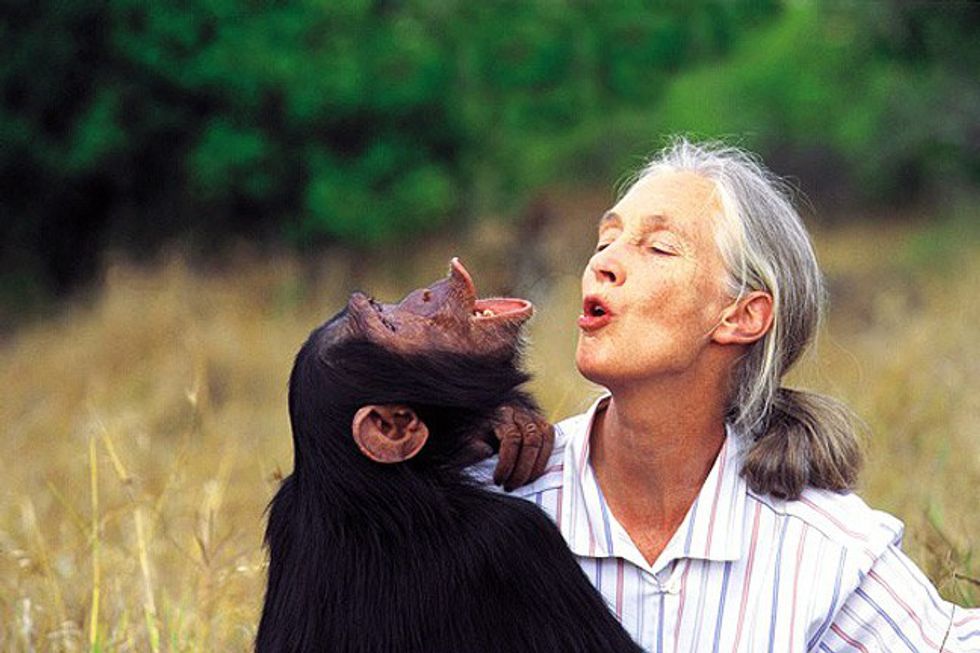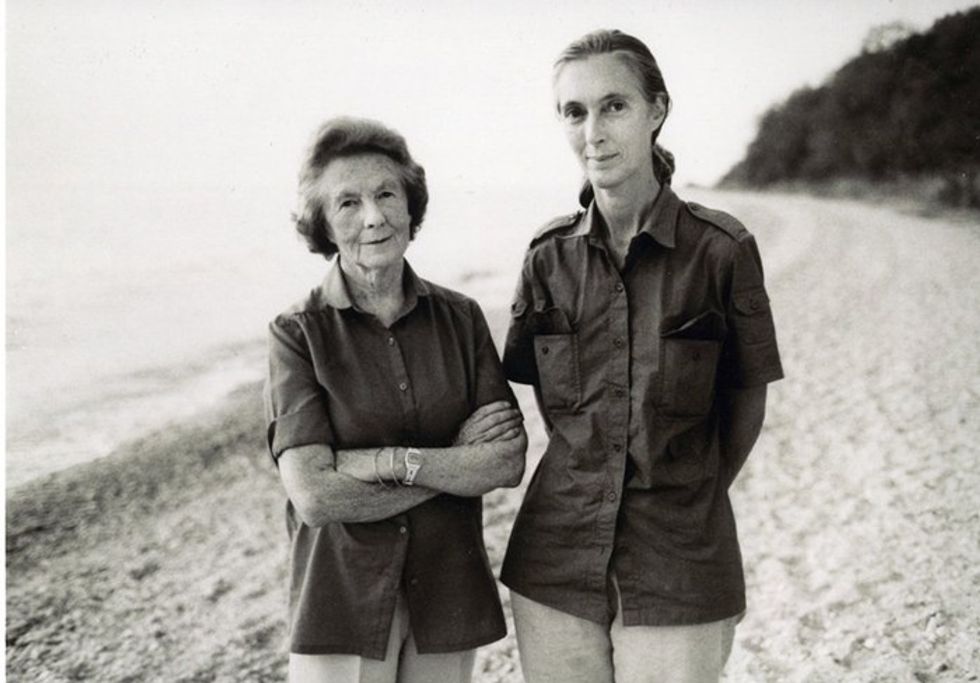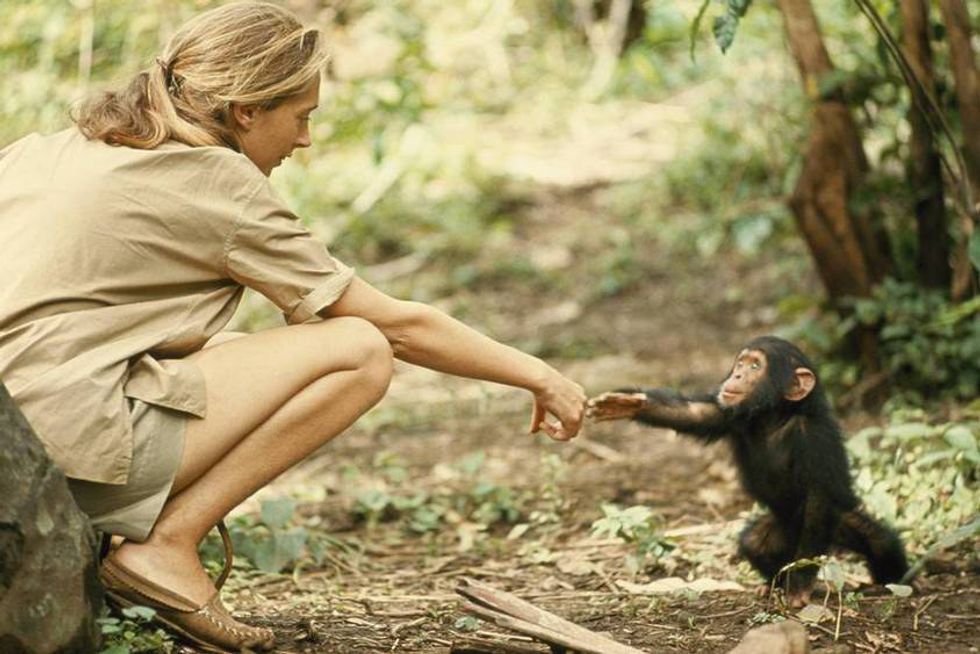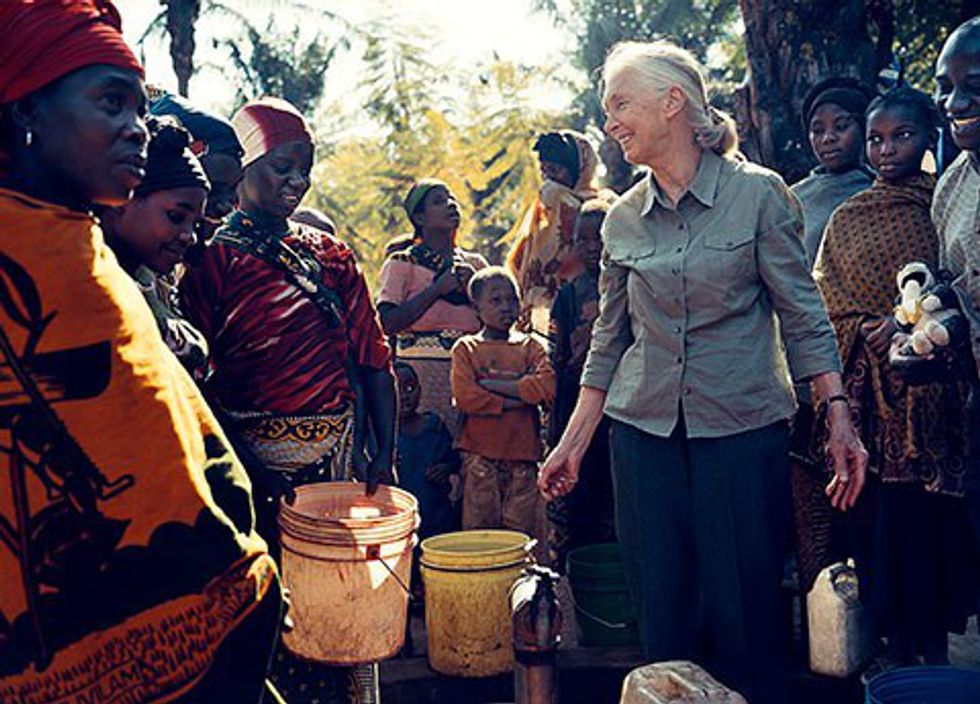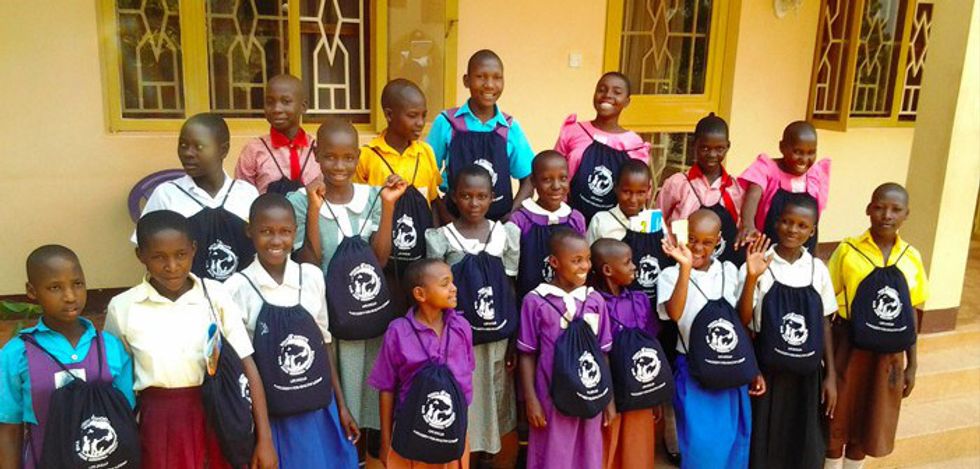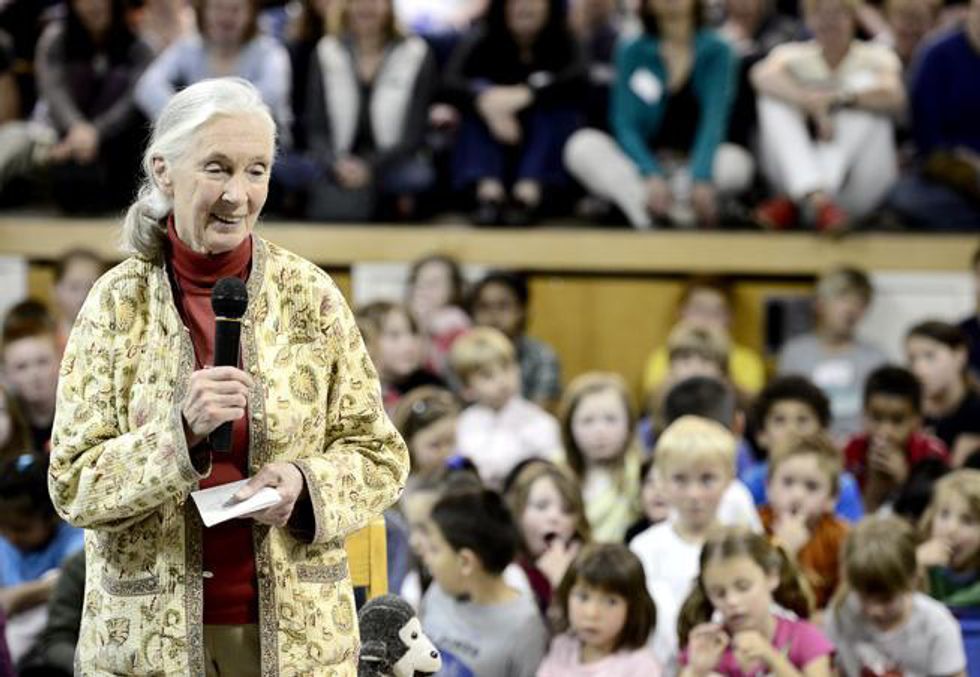In 1960, a 26-year-old Jane Goodall traveled from England to Tanzania to study chimpanzees in the African forest. Since then, her research has revolutionized the study of great apes, their habitats, and the relationship between humans and animals. Her vast impact on primatology continues today through her efforts to save primate populations in the wake of deforestation, poaching, and looming extinction. She is also the founder of the Jane Goodall Institute, which supports communities and encourages sustainability throughout African villages. Her work empowers young people all around the world to be mindful of the planet we call home. Jane’s birthday is April 3, and to celebrate, here are seven ways she is inspiring and changing the world.
1. She put the world on a first-name basis with chimpanzees in Tanzania
In an unprecedented method in the scientific community, Goodall never assigned numbers to the chimps she observed, only names. When reading her research, people learned about Flo and David Greybeard, Fifi and Goliath. The chimps were portrayed as beings with emotions, personalities, resentments and empathy. When Flo, an older female chimp from Goodall’s early days at Gombe, passed away in 1972, The London Times printed an obituary.
2. She is a pioneer for women primatologists
When Goodall first went to Tanzania, it was so unconventional for a woman to conduct research alone in the African jungle that British authorities insisted she bring a companion — so her mother came along. She forged a path for other female primatologists to follow, inspiring a generation of women like Dian Fossey.
3. She earned a Ph.D. from Cambridge University without having an undergraduate degree
When Goodall applied to Cambridge as a Ph.D. candidate in 1961, she was one of the only people to ever be accepted without any previous college degree. At that point, Goodall’s year of research with the chimpanzees was promising enough.
4. The Jane Goodall Institute promotes development and environmental sustainability in African communities
Community-centered health projects include access to clean water, vaccinations and attention on women’s health. Sustainable development programs like community-managed microcredit and more efficient agricultural practices help improve incomes, increase school enrollment, and protect the environment inhabited by both people and chimpanzees. According to its website, the Institute believes that as a community becomes more sustainable, “the propensity of those who exploit the land and its wildlife for economic gain will subsequently decrease, thereby helping extinguish threats to apes and their habitats both indirectly and directly.”
5. Goodall empowers young people to change the world
Girls able to attend school, holding Roots & Shoots backpacks
Through Goodall’s Roots & Shoots program, 150,000 members in over 30 countries are becoming leaders in their communities and collaborating on myriad issues facing the world today. Goodall encourages young people to identify a problem, collaborate with the community, and execute a service campaign to target the issue. Roots & Shoots projects have involved clean water initiatives, awareness of endangered species, recycling campaigns, and helping the homeless.
6. Goodall travels 300 days of the year to spread her message
Even though she just turned 82, Goodall has remarkably not slowed down. Her work is more pressing than ever, and she devotes the majority of her time visiting schools and conferences to talk about protecting chimpanzees and the environment. She encourages people to realize that we are an integral part of the planet. We have a responsibility to incite change and protect what surrounds us — whether that be chimpanzees, other people, or the earth.
7. Goodall's TED Talks are incredibly inspiring
If these accomplishments have not been enough to convince you of Goodall’s incredible impact, check out her two informative and inspirational TED Talks: one entitled, “What separates us from chimpanzees?” and the other, “How humans and animals can live together.” "Goodall hasn’t exactly found the missing link” between humans and animals, “but she’s come closer than just about anyone else on Earth.”
Happy Birthday, Jane! Here's to many more years of your continued legacy.




